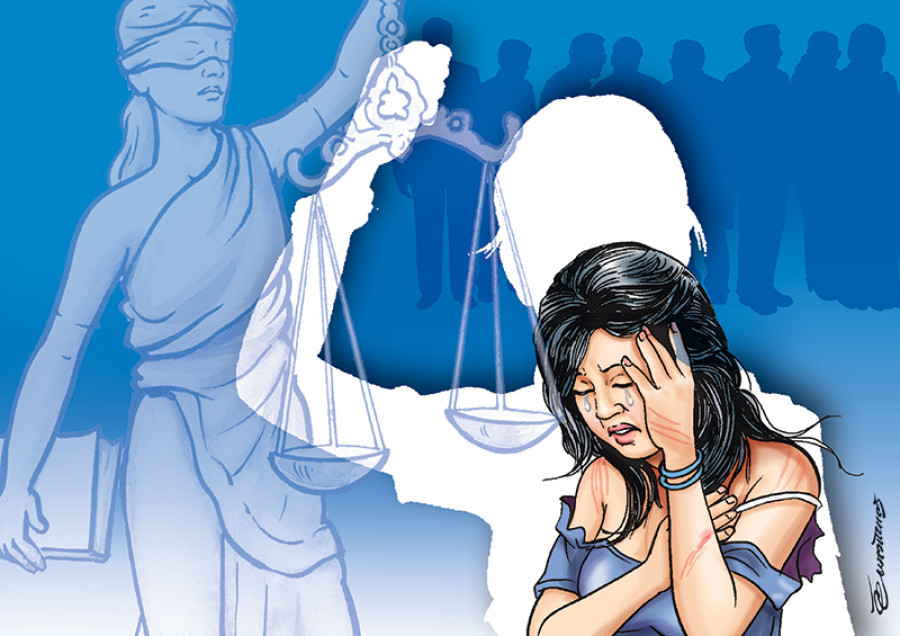Editorial
Gendered justice
Law in much of South Asia, including in Nepal, favours men, even in horrifying rape cases.
On Monday, a sessions court in Kolkata sentenced Sanjay Roy to life for the rape and murder of a junior doctor at RG Kar Medical College and Hospital. The harrowing incident last August sparked widespread public outcry and doctors went on strike for weeks. Although India’s Central Bureau of Investigation demanded the death penalty, the judge didn’t accede to this request. The judge’s remark that this wasn’t a “rarest-of-rare” crime was shocking, and dissatisfied protesting doctors. In fact, justice in much of South Asia favours men, even in cases as horrifying as rape.
This is so even in our country. According to the Nepal Human Rights Year Book, published in 2024 by the Informal Sector Service Centre (INSEC), 5,903 victims of women’s rights abuses were documented in 2023, including 651 victims of rape and 152 victims of attempted rape. In 2023 there were 4,228 victims of women’s rights violations, with 605 incidents of rape and 145 cases of attempted rape. These numbers are likely underestimations, as many victims are too afraid to speak out or are silenced. Often, the victims are young girls who face even greater fear in revealing the horrors they’ve endured. According to the INSEC report, among the 1,565 documented victims of child rights abuses in 2023, 1,002 were rape cases.
This also shows how our society perceives rape. We fail to recognise the power dynamics at play between the privileged and the disadvantaged, the exploiter and the exploited. Instead, we view rape merely as the result of a man’s sexual drive, which is deemed “natural”, where the onus falls on the woman to protect herself. When we hear about rape, we seldom focus on teaching our sons about consent while our daughters are being lectured about their safety, especially when out alone or at night. However, women are unsafe even in places where they should feel protected, such as their homes and workplaces.
They are unsafe even in marriages, no matter where they live, as evident in the story of a 72-year-old French grandmother, Gisèle Pelicot, who was drugged and raped by her husband, who had allowed others to abuse her for almost a decade. Sadly, in our part of the world, marital rape is even more common. In 2022, 2,387 marital rape cases were filed in Nepal, and as of mid-March 2023, the number stood at 1,567. Many Nepali women are unaware that rape can happen within marriage. This also extends to young women in intimate relationships.
The level of impunity granted to rapists in Nepal is concerning. The widely publicised case of Nirmala Pant’s rape and murder remains unsolved. During the decade-long insurgency, many women were labelled Maoists and subjected to repeated rape in captivity. Two decades on, the scars are still fresh for the victims. Our regressive mindset is reflected in our legal system, too. In 2022, following public protests to abolish the statute of limitations on rape, which was previously only one year, the National Assembly passed amendments extending the time limit. Adults could file a lawsuit within two years of the incident, while minors can take legal action within three years of turning 18. However, these time restrictions should not apply for crimes as sensitive as rapes.
No progress is possible unless women in Nepal feel safe. We cannot introduce blanket laws that ignore the sensitivity and seriousness of the issue. Further, creating a conducive environment for women to share their experiences and seek justice is vital. However, awareness, laws and education can go only so far unless men are willing to be more empathetic and to speak up against injustice against women.




 8.26°C Kathmandu
8.26°C Kathmandu














